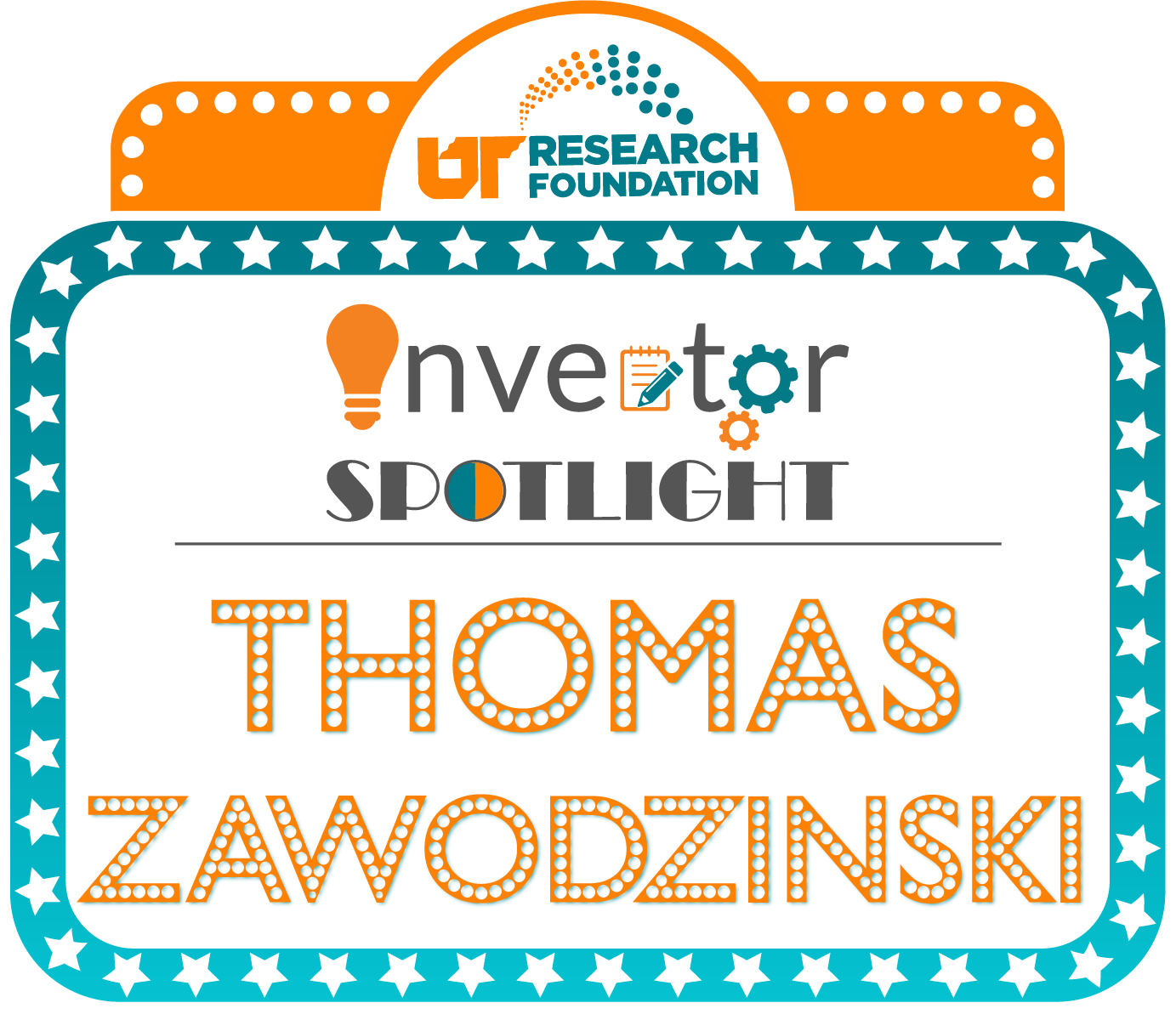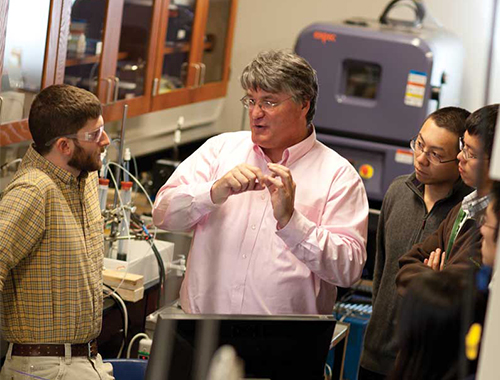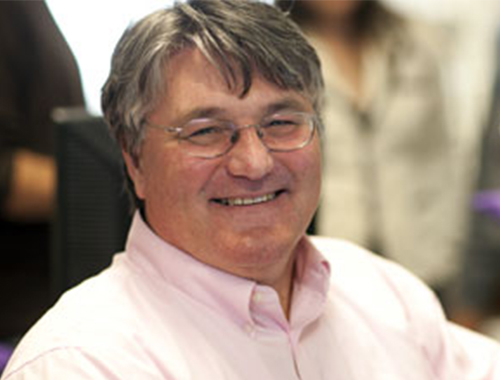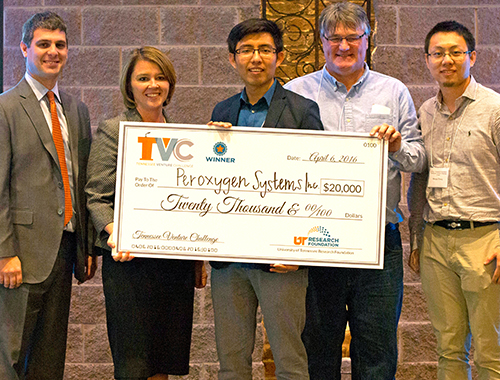
Tom Zawodzinski Ph.D. is the Governor’s Chair in Electrical Energy Storage with joint appointments in the Department of Chemical and Biomolecular Engineering at the University of Tennessee, Knoxville and the Division of Materials Science and Technology at Oak Ridge National Laboratory (ORNL). His research focuses on identifying ways to advance the technology and materials used in batteries and fuel cells. Dr. Zawodzinski received his PhD in chemistry from the State University of New York at Buffalo. After graduate school, he spent 13 years at Los Alamos National Laboratory researching polymer electrolyte fuel cells. From there, Dr. Zawodzinski went to Case Western Reserve University, where he served as the F. Alex Nason Professor of Engineering, Director of the Case Advanced Power Institute, and Ohio Eminent Scholar in Fuel Cells. He joined UT in September 2009.
Dr. Zawodzinski’s Governor’s Chair appointment allows him to conduct research at ORNL and UT. One example of this is his research on flow batteries, an emerging large-scale energy storage technology that could enable the nation’s power grid to use more renewable energy sources. He teamed up with Dr. Matthew Mench, Condra Chair of Excellence Professor and Department Head of Mechanical, Aerospace and Biomedical Engineering at UT, to improve the performance of flow battery technology. They were able to achieve at least 10 times better performance than current technology, and UTRF licensed this technology to a company in 2013.
Dr. Zawodzinski also leverages his ties with ORNL to investigate the behavior of various fuel cell components. Working in collaboration with California-based SAFCell, he won a multi-year ARPA-E project to design a radically different fuel cell electrode structure that requires less platinum. Platinum is used as a catalyst in fuel cells and represents a significant portion of the cost of a fuel cell system. Through the ARPA-E project, Dr. Zawodzinski’s team achieved a ten-fold reduction in the amount of platinum needed to run a fuel cell system, and the technology was licensed in 2016 by UTRF.



Dr. Zawodzinski possesses an entrepreneurial spirit too, developed during his time at Los Alamos experimenting with technologies and working with industry. At UT, Dr. Zawodzinski partnered with one of his students, Ming Qi, to found Peroxygen Systems. The startup’s business is based on a catalyst, discovered by Qi. The company’s goal is to fundamentally disrupt hydrogen peroxide’s distribution models by providing onsite, on-demand hydrogen peroxide. The system can reduce the cost of producing hydrogen peroxide by at least 50% and substantially reduces the hazards associated with the shipping and handling of high-concentration hydrogen peroxide. UTRF was the first to award funding to Peroxygen Systems through the 2016 Tennessee Venture Challenge pitch competition. The $20,000 prize money proved extremely helpful in getting the newly formed company off the ground. Additionally, Dr. Zawodzinski and Qi received a $500,000 ARPA-E grant that enabled development of a prototype. Dr. Zawodzinski helps Qi build an ecosystem that brought together the people and resources needed to scale their technology from the lab to a multi-cell system, resulting in the rapid and cost-effective development of a prototype.
Dr. Zawodzinski acknowledges that commercialization is not easy, but it’s important to him because it’s important to his students and he enjoys giving every bit of help he can to students who have the right mindset and attitude to take on an entrepreneurial venture. After the experience with Peroxygen, his group is already thinking about other spin-offs that might include a broader range of electrochemical technologies, and possibly even a partnership with Peroxygen.
“Moving technology from lab to market is a validation of what we are doing. It’s a kick to see us jump over those hurdles and get things done,” says Zawodzinski. “As much as I enjoy the intensity and the mental challenge, I do like to keep a balance with the basic science side of things too.”
UTRF has been a key partner for Zawodzinski, who says his engagement with UTRF
“feels like a real collaboration.”
The UTRF team has been very supportive, helping him determine which technologies have commercial potential and ensuring the licensing process is a smooth and fair process for everyone involved.